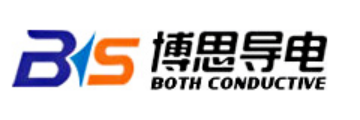With the development of economy, people's demand for chemical products is increasing, more and more production equipment run beyond their design capacity. Therefore, it has become an urgent problem for global chemical enterprises to prevent the loss of process equipment due to corrosion. Many experts believe that material protection and anti-corrosion measures are important to reduce maintenance costs and ensure the safe and stable operation of the plant.
Corrosion is widespread in various fields. Due to corrosion, a large number of materials become waste materials and the equipment fails. At present, the anti-corrosion technology mainly includes the development of corrosion-resistant materials, surface anti-corrosion technology, corrosion inhibition technology, electrochemical protection and so on.
The development and research of corrosion-resistant materials is the breakthrough of anti-corrosion technology progress, which is closely related to the technological progress of human in various periods. Corrosion resistant materials are mainly divided into metal materials, polymer materials, inorganic non-metallic materials.
At present, the cost of surface corrosion-resistant coating and metal surface technology accounts for about 87% of the total anti-corrosion cost. The correct surface anti-corrosion technology is an essential way to improve the service life of the equipment, reduce the maintenance cost and improve the management level of the equipment. At the same time, the corrosion resistance of the whole material is greatly improved by using the surface anti-corrosion technology. The commonly used surface anti-corrosion technologies in chemical and petrochemical industry include coating, lining, plating, infiltration and various high technologies developed in recent years, among which coating and lining are the most widely used.
The development of corrosion-resistant coatings has always been the research field of people's attention. In the chemical industry, corrosion resistant coatings are mainly used in the internal and external walls of buildings, structures, devices and storage tanks, as well as water, oil and gas pipelines. According to statistics, about 75% of the coating is damaged due to improper surface treatment. Therefore, it is urgent to pay attention to the quality of surface treatment.
Several promising coatings, such as zinc rich coating, heavy duty anticorrosion coating, high temperature resistant coating, ceramic coating, rust coating, fluororesin coating, etc., are the most popular coatings in the world.
Electrochemical protection is an anti-corrosion technology that uses external current to change the corrosion potential of metal to reduce its corrosion rate. Electrochemical protection can be divided into cathodic protection and anode protection. Electrochemical protection technology has attracted extensive attention and application in the field of chemical anti-corrosion, which is an effective, economical and practical anti-corrosion method.
Cathodic protection is to pass enough cathodic current on the metal surface to make the metal potential negative and reduce the metal dissolution rate. Generally, the structure shape of the protected equipment should not be too complex. The current density of the equipment with complex structure near the auxiliary anode is large, and the current density far away from the auxiliary anode is small, so it can not get enough protection current. It does not even play a protective role, resulting in the so-called "shielding phenomenon". Cathodic protection is mainly used in metal structures in water and soil, but it must be used in the environment with simple equipment structure and less corrosive medium. Cathodic protection can prevent not only general uniform corrosion, but also pitting corrosion, intergranular corrosion, impact corrosion and selective corrosion of some materials.
Anode protection is to connect the protected metal component with the positive pole of the external DC power supply. In the electrolyte solution, the anode of the metal component is polarized to a certain potential to establish and maintain a stable passive state. As a result, the anodic dissolution is inhibited, the corrosion rate is significantly reduced, and the equipment is protected.
Shandong Linyi Bosi conductive materials Co., Ltd. is a high-tech enterprise specializing in the production of MMO flexible anode, conductive polymer flexible anode and titanium coated anode, mainly providing cathodic protection technology, engineering design, installation and technical services.
Tel: +86 17568010262.0539-3712117
